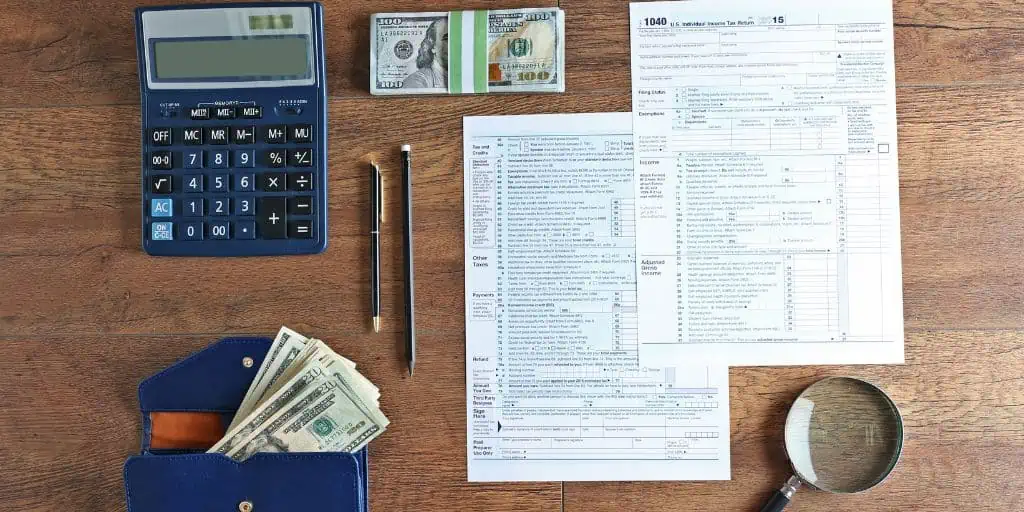What Is a County Assessor?
What Does a County Assessor Do?
A county assessor evaluates and fixes the value of properties within their jurisdiction, allowing these assessed properties to be taxed appropriately[1]. They research property values, inspect properties, and determine the fair market value for county tax records[2].

Assessors must work to ensure fairness when assessing values for county property owners. They need to apply assessment procedures consistently throughout their county, regardless of differences in location or type of land ownership.
With the changing nature of property values, every assessor’s office must also stay current on local and national real estate trends. They must be knowledgeable about laws and regulations related to county assessments to furnish their duties accurately[3].
Duties and Responsibilities of a County Assessor
Knowing the role of a county assessor can help homeowners understand the local taxation process. By knowing the responsibilities of the assessor’s office, a property owner can ensure they are correctly taxed.
The duties and responsibilities of county assessors include the following:
Ensuring proper tax collection from county residents
A county assessor ensures the tax collection system is secure, is aware of all local guidelines, and stays up to date with the latest procedures and regulations. They also protect taxpayer rights and maintain accuracy and transparency throughout this process.
Analyzing market trends to set property values accurately
An assessor is expected to survey the market and interpret local and relevant data to find current prices. The more detailed their survey and report, the more accurately it will reflect a property’s worth.
By obtaining and reviewing compatible current information, the office can make an informative and reliable assessment regarding what each home is worth within the county.
Inspecting county properties
County assessors check properties to make sure they are in good shape and up to code so everyone pays the correct amount of taxes. They also ensure that the properties are safe and comply with local regulations and laws. They look at paperwork from contractors to make sure any updates or renovations are done correctly.
Ensuring all property owners get uniform and equitable assessments
County assessors work with administrators to provide fair assessments. They maintain their understanding of current regulations and enforce the consistent application of assessments.
They also ensure that each property owner is treated fairly by closely monitoring assessments, answering questions about proceedings restrictions, and using relevant data for market analysis.
Providing written reports on assessments and taxation procedures
County assessors submit reports that provide objective and trustworthy taxation information crucial in navigating the complexities of local tax laws. These reports keep everyone informed so they can stay compliant with the county’s taxation regulations.
The assessor must be sure the forms they file are accurate, as the information provided has a significant bearing on what tax deductions a property may or may not be eligible for.
Overseeing the general reassessment process
County assessors manage assessments on commercial properties and handle requests for property tax relief and/or exemptions. They also oversee reassessments, which help maintain proper records that represent valid, timely information about the value of the properties in the county.
Processing petitions for appeals of assessments
Finally, county assessors monitor information about assessments, evaluate it, and draw up fair decisions based on evidence and the local laws that apply at the time. They also direct reviews of appeals, investigate all available data related to the parcel in question and analyze documents and arguments that petitioners present before making a final decision[4].
What Kind of Properties Can a County Assessor Assess?
County assessors assess both residential and commercial properties within the county. This includes single-family homes, multi-family homes, apartments, office buildings, retail space, land parcels, and industrial complexes, among others.
Generally speaking, the assessor’s office is responsible for surveying all real estate or real properties, as well as personal property such as business equipment and inventory.
Real properties include any tangible asset with a physical presence, such as land, buildings, and other structures, including walls, fences, roads, and sewers. They are all assessed for taxation to draw funds for county services such as schools and law enforcement[5].
How Is Real Property Assessed?
A county assessor will typically use a combination of methods to assess real property. These methods can include the market approach, cost approach, and income approach.
- Market approach: Value assessment by using recent sales of similar properties within the county[6].
- Cost approach: Value assessment by construction costs for a specific type of property[7].
- Income approach: Value assessment by potential income that the property can generate[8].
All three valuation techniques use data from market factors, such as location, property condition, and county economic trends. In addition, they may combine all three approaches to make the most accurate rendition of a property’s value.
Training and Education of a County Assessor
The qualifications for county assessors differ from state to state, but they all need at least some formal training in county assessment law and practice.
While there is no specific primary requirement to obtain the position, having some experience and qualifications in real estate or finance through business administration degrees is advantageous when applying for a county assessor position. Economics law, computer science, mathematics, and other finance-related classes can also enhance one’s chances of securing the role[9].
In addition to formal education, county assessors must possess strong communication skills, be experienced problem solvers who can think independently, and make impartial decisions when needed. They should also understand real estate principles to analyze data accurately and develop fair assessments.
County assessors often take some specialized training and certification courses, including computer-assisted mass appraisals (CAMA) and advanced appraisal techniques. They must also be familiar with the county laws that govern assessments in their jurisdiction.
Overall, county assessors require a combination of formal training and practical experience to succeed in their roles[10].
Takeaways
- A county assessor is a local government official who determines the value of a property so it can be taxed at the right amount.
- Assessors work to ensure fairness as they reassess property values from time to time, and oversee petitions regarding property value.
- A county assessor uses any combination of three methods to find the value of a property: comparison with similar properties, potential income, and cost of construction.
- Kagan, J. (2021, August 14.) Assessor. Investopedia. Retrieved from https://www.investopedia.com/terms/a/assessor.asp
- County Assessor’s Manual. (2021, September.) Department of Revenue Washington State. Retrieved from https://dor.wa.gov/sites/default/files/2022-02/AssessorRefManual.pdf
- 2023 Property Assessment Process Guide for Municipal Officials. (2023.) Wisconsin Department of Revenue. Retrieved from https://www.revenue.wi.gov/DOR%20Publications/pb062.pdf
- Assessor Functions & Responsibilities. (n.d.) Tippecanoe County. Retrieved from https://www.tippecanoe.in.gov/153/Functions-Responsibilities
- The job of the assessor. (2021, September 8.) Department of Taxation and Finance. Official Website of New York State. Retrieved from https://www.tax.ny.gov/pubs_and_bulls/orpts/assessjo.htm
- How to estimate the market value of your home. (2021, April 23.) Department of Taxation and Finance. Official Website of New York State. Retrieved from https://www.tax.ny.gov/pubs_and_bulls/orpts/mv_estimates.htm
- Liberto, D. (2021, January 19.) What Is the Cost Approach in Calculating Real Estate Values? Investopedia. Retrieved from https://www.investopedia.com/terms/c/cost-approach.asp
- Hargrave, M. (2020, July 29.) Income Approach: What It Is, How It’s Calculated, Example. Investopedia. Retrieved from https://www.investopedia.com/terms/i/income-approach.asp
- How to Become a County Assessor. (n.d.) Becomeopedia. Retrieved from https://www.becomeopedia.com/county-assessor/
- Tax Assessor Training and Education Programs. (n.d.) Learn.org. Retrieved from https://learn.org/articles/Tax_Assessor_Training_and_Education_Programs_Your_Questions_Answered.html













